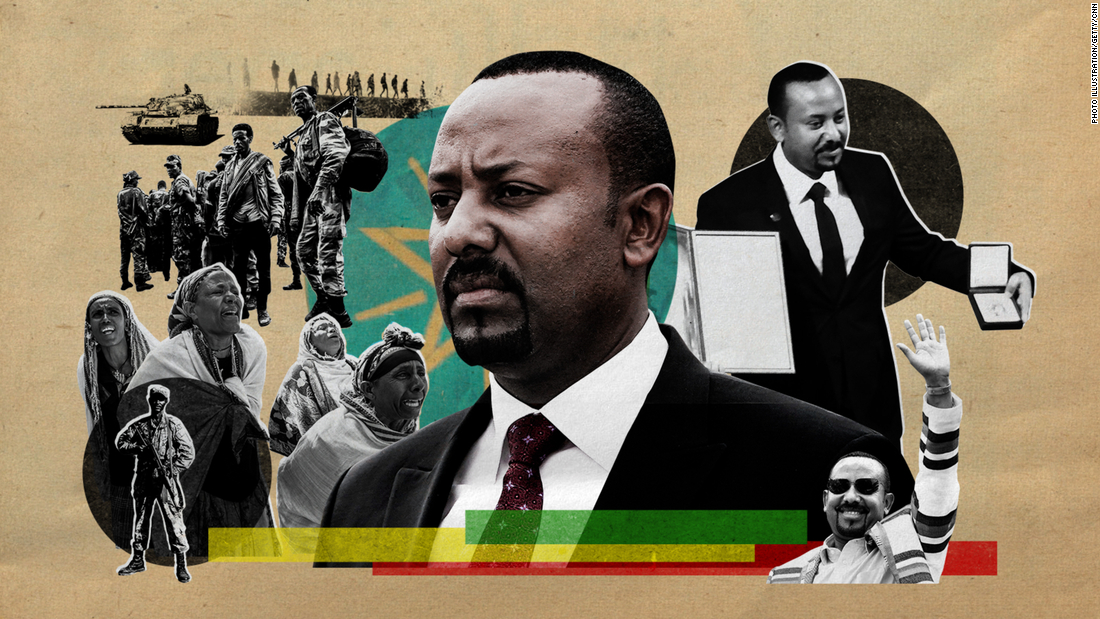
By Eliza Mackintosh, CNN
Updated 5:24 AM ET, Fri November 5, 2021
(CNN)“Abiy, Abiy,” the crowd chanted, waving Ethiopia’s tricolor flag and cheering as the country’s new prime minister, dressed in a white blazer with gold trim and smiling broadly, waved to a packed basketball arena at the University of Southern California in Los Angeles, part of a whirlwind three-city tour of the United States to woo the diaspora.
It was July 2018, just three months after Abiy Ahmed had been appointed leader of Africa’s second-most populous country, and his star was rising both at home and abroad. Excitement was surging into an almost religious fervor around the young politician, who promised to bring peace, prosperity and reconciliation to a troubled corner of Africa and a nation on the brink of crisis.
But even in those early, optimistic days of Abiy’s premiership, as he kickstarted a flurry of ambitious reforms — freeing thousands of political prisoners, lifting restrictions on the press, welcoming back exiles and banned opposition parties, appointing women to positions in his cabinet, opening up the country’s tightly-controlled economy to new investment and negotiating peace with neighboring Eritrea — Berhane Kidanemariam had his doubts.
